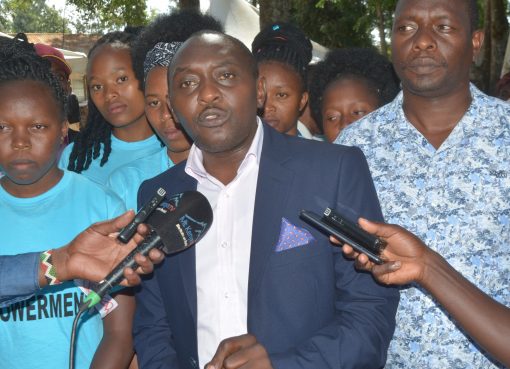
Goat farming has never been more lucrative than it is in Kirinyaga County right now.
A few kilometres off the Sagana-Meru highway in Rukanga Sub-location, a model farmer is literary laughing all the way to the bank, thanks to his 50 pedigree goats.
David Ndirangu’s farm is well maintained and has very high health standards required by the authorities for anyone who is keen on exporting meat abroad.
The small farm’s compound is enclosed in a wooden structure for the safety and good health of the pedigree goats that are in high demand both locally and internationally.
According to Ndirangu, his farm is a temporary home for the healthy exotic goats waiting to be exported to Djibouti, in the Horn of Africa, where they fetch a good price.
This is one area that the Government is promoting to boost the livestock sector and also earn foreign exchange.
“It is two years now since I started keeping the upgraded goats and now I count myself lucky because my goats have been approved for export,” Ndirangu says proudly.
“My farm has been selected as one of the holding grounds for upgraded goats in Kirinyaga County,” he said.
A farm hand, Samson Muchiri says that the move to rear upgraded goats is paying dividends and is a model for livestock farmers in the County and beyond.
“Mzee has allowed me to have my own goats in his farm and I can say my life has changed. I started with two goats then advanced to five goats. So far, I have sold three of them.”
A one-year-old goat sells between Shs.10, 000 to 20,000 depending on whether it is sold locally or in the foreign market,” says Ndirangu
A private firm Agribiz Consult partnered with dairy goat farmers to export the high milk yielding animals to Djibouti.
The goats aged between 8 to 24 months and comprising of the best milk breed have since been exported to the Horn of Africa nation.
The animals are sourced from farmers across the county who rear them purposely for milk production following a demand by Djibouti government through the Dairy Goats’ Association of Kenya.
The County Director for Livestock Development, Veterinary and Fisheries, Dr. Richard Gichangi, says the 45 female goats recently exported had to be isolated for a certain period, immunised and tagged before the sale abroad.
He said sourcing takes up to four months from the farmers who have the animals. “The animals have to be placed under quarantine under the supervision of a qualified doctor,” the Director said.
The Veterinarian says the animals are then subjected to a series of vaccinations and other veterinary procedures (International Procedures which apply in the African Continent), to prevent diseases like blue tongue, Foot and Mouth among others.
The animals after twenty-one days (’21) after the last vaccination are issued with a Health Certificate to the exporter by the National Director of Veterinary Services who also issue an Export Movement Permit.
The animals have also to be accompanied by our doctor to their new environment. The process is long but farmers are willing to persevere due to the high returns.
”An animal is fetching up to Sh. 20,000 and this is certainly good business to our farmers while the population of the animals in the county stands at only 6000,” he said.
Gichangi urged farmers to venture into dairy goat farming since even the milk which goes for Sh. 120 per liter is in high demand due to its nutritive value while the market is under supplied.
He said the county government has provided a 500 liter pasteurising tank which the farmers can hardly fill up due to the scarcity of the highly priced commodity.
Julius Kangee, the Chairman of Dairy Goats Association of Kenya, says the upgraded goats ranging from 10 months to two years are usually healthy and ready to be exported.
Kangee says about 75 per cent of pedigree goats have the capacity of twining. Each goat can produce a minimum of 1.5 liters of milk depending on animal husbandry.
Zero-grazing is recommended for health purposes and goats should not be exposed to a lot of heat to avoid stress.
“A pedigree male goat matures up to four years and can weigh about 100 kilogrammes while a female goat weighs 70 kilogrammes,” explains Kangee.
By Irungu Mwangi



